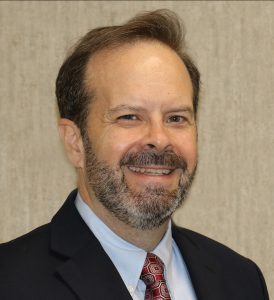
By Michael Pauley
On June 24, 2023, pro-life advocates in South Dakota celebrated the one-year anniversary of the U.S. Supreme Court’s decision in the Dobbs case, which finally allowed our state to begin protecting vulnerable preborn children and their mothers from the violence of abortion.
Unfortunately, not everyone is celebrating South Dakota’s life-affirming laws. An activist group called Dakotans for Health has described these policies as an “extreme set of chains that now shackle every woman in the state.” The group is working to collect enough signatures to place a proposal before voters in the 2024 election that would add an extreme amendment to the state constitution, imposing unrestricted abortion on demand throughout pregnancy.
It’s become commonplace to hear abortion framed as a “women’s rights” issue, while laws protecting preborn children are maligned as policies designed to “oppress women.” For example, following the Dobbs decision, U.S. Sen. Bernie Sanders tweeted, “Overturning Roe v. Wade and denying women the right to control their own bodies is an outrage …”
The deceptions contained in this kind of rhetoric should never go unchallenged. The preborn child is a genetically unique, living and whole human being who is distinct from her mother and father. About half of preborn children who are aborted are female, sacrificed in the name of advancing “women’s rights.” Furthermore, a growing body of evidence reveals that a large percentage of abortions occur because women are coerced by others—often by men—which makes the talk about “autonomy, rights and choice” sound hollow indeed.
Unfortunately, the cumulative effect of such messaging has cowed many men into silence on abortion. Writing in the Washington Examiner (May 9, 2023), author Ericka Andersen describes the social dynamic: “When it comes to this contentious conversation, men are usually excluded. Whether it’s the decision to abort or space to grieve the loss of a child, secular feminists are clear: Keep your mouth shut.”
Christian men are not immune to this social pressure, and an untold number have become emotionally detached from the abortion issue. Yet our Church challenges us to do better. We’re called to embrace our responsibility as men to protect vulnerable women and children.
There is perhaps no better role model for this than St. Joseph, who acted decisively to protect the lives of Mary and Jesus. In the Gospel of Matthew (2:13-14), we read of an angel of the Lord appearing to Joseph “in a dream” and enjoining him: “Rise, take the child and his mother, flee to Egypt, and stay there until I tell you. Herod is going to search for the child to destroy him.” We then read that Joseph rose and departed with Mary and Jesus “by night” for Egypt. The implication is clear: Joseph didn’t wait around to seek a second opinion before undertaking an arduous and dangerous journey to a foreign country. He responded in faith and left immediately in the middle of the night.
One men’s group that has shown great leadership for protecting the preborn is the Knights of Columbus. On both the national level and here in South Dakota, the Knights have proven themselves to be men of action through their aid for pregnancy resource centers, help for disabled children, support for pro-life marches and rallies, and many other initiatives.
Appropriately, the Knights of Columbus look to St. Joseph for inspiration. In 2021, in honor of the “Year of St. Joseph” declared by the Holy Father, the Knights produced an inspiring documentary exploring the life of St. Joseph, his powerful intercession and the virtuous example he sets for all men. Entitled “St. Joseph: Our Spiritual Father,” the documentary can be seen on the Knights of Columbus website (www.KofC.org), FORMED and YouTube.

Supreme Knight Patrick Kelly, interviewed for the documentary, commented: “To be a righteous man means to be a man of courage and to be a man of sacrifice—that is to say, sacrifice your own interests for the good of another. This is an important aspect of St. Joseph. I think we’re at a moment in society where men are afraid to stand up for what is right. The example of St. Joseph teaches us that we become free, we really find ourselves, when we have the courage to live for others.”
In South Dakota, men have an opportunity to stand up for life by defending children from the threat of abortion. In 2021, the last full year before Roe v. Wade was overturned, 192 preborn girls and boys perished from abortion in our state. If the radical abortion amendment becomes part of our state’s constitution in 2024, this legally sanctioned, unfettered killing will once again return to South Dakota.
There are several actions men of faith can take to safeguard our pro-life laws. First, support the work of the Life Defense Fund (LDF), an organization set up specifically to defeat the radical abortion amendment. Visit the LDF website at www.lifedefensefund.com where you can sign up to volunteer and make a donation.
Second, sign up for the newsletter of the South Dakota Catholic Conference at www.sdcatholicconference.org, so you can receive important updates on how our local church is working to protect life. Also, if you’re inspired by the work of the Knights of Columbus, consider joining them. You can learn more by talking to a KofC member in your local parish or visiting the South Dakota Knights of Columbus online at www.kofcsd.org.
One defense against the cultural prejudice that seeks to silence men on the abortion issue is to maintain fellowship with men of courage and compassion who refuse to comply with today’s reigning ideologies. Pope St. John Paul II said that Christ “assigns as a duty to every man the dignity of every woman.” Let us ask for the intercession of St. Joseph, that we would have the courage to fulfill that noble commission.


